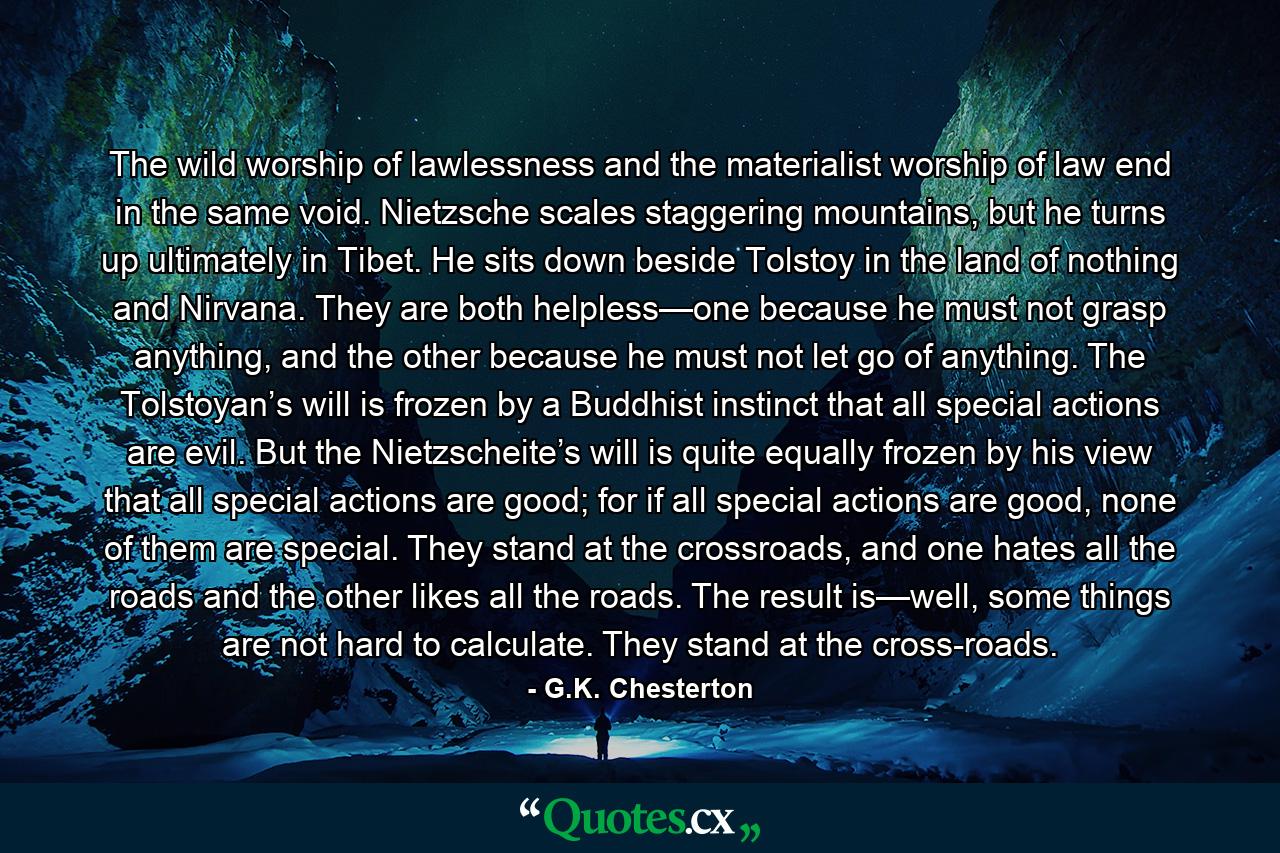The wild worship of lawlessness and the materialist worship of law end in the same void. Nietzsche scales staggering mountains, but he turns up ultimately in Tibet. He sits down beside Tolstoy in the land of nothing and Nirvana. They are both helpless—one because he must not grasp anything, and the other because he must not let go of anything. The Tolstoyan’s will is frozen by a Buddhist instinct that all special actions are evil. But the Nietzscheite’s will is quite equally frozen by his view that all special actions are good; for if all special actions are good, none of them are special. They stand at the crossroads, and one hates all the roads and the other likes all the roads. The result is—well, some things are not hard to calculate. They stand at the cross-roads.
